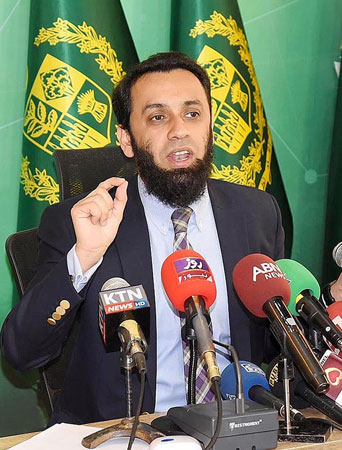Govt to ensure implementation of minimum wages for nurses, paramedics


Responding to a question during the session’s question hour, he said that the Islamabad Healthcare Regulatory Authority (IHRA) had issued directives to all private hospitals to ensure 100% compliance with the minimum wage for nurses and paramedical staff.
The minister said, “At present, nurses are drawing between Rs 30,000 and Rs 50,000, while paramedical staff receive between Rs 20,000 and Rs 30,000.”
He assured the assembly that the government would enforce the wage directive within one month following the IHRA’s orders and warned that hospitals failing to comply would face strict action.
In response to another question, Tarar mentioned that Prime Minister Shehbaz Sharif had instructed the National Vocational and Technical Training Commission (NVTTC) to train nurses to meet the growing demand in domestic markets, as well as in the Middle East and Europe.
He said that the NVTTC had been directed to ensure international-standard training and to enhance its capacity for training nurses. He also supported the suggestion to introduce nursing as a subject in educational curricula.
In response to another question, the minister said, “The government has taken significant steps to comprehensively address women’s health challenges. These measures include establishing Postpartum Family Planning (PPFP) guidelines and the Essential Package of Health Services (EPHS), which focus on family planning and addressing complications related to pregnancy and childbirth, to reduce maternal and neonatal mortality.”
“Basic Health Units (BHUs) have been upgraded to provide Basic Emergency Obstetric and Newborn Care (B-EmONC) services around the clock,” he added.
“The government has also launched national screening and awareness campaigns for breast and cervical cancer among women. The LHW Strategic Plan (2022-2028) particularly focuses on strengthening primary healthcare services in marginalized, remote, rural, and urban slum communities,” , he said.
He said, “Pakistan Maternal Nutrition Strategy (2022-2027) is another significant initiative aimed at improving maternal health. The Pakistan Adolescent Nutrition Strategy addresses challenges adolescent girls face, including anaemia, micro-nutrient deficiencies, underweight, and obesity, by promoting healthy eating habits, targeted supplementation, physical activity, hygiene practices, and overall healthy lifestyles.”
“The government has also strengthened laws to combat harassment, such as the Protection Against Harassment of Women at the Workplace Act (2010), helping to prevent mental health crises resulting from harassment,” he said.
“An Anti-Rape Crisis Cell (ARCC) was established at the Federal Government Services Hospital in August 2024 to provide survivors with comprehensive services, including medical and psychological support, legal aid, and counselling, all in one place,” he added.
He said, “A campaign focused on breast cancer screenings has been launched, particularly targeting rural areas. Camps have already been set up to educate people on the issue. Private TV channels have been encouraged to broadcast breast cancer awareness ads free of cost, and Breast Cancer Week is being observed across the country.”
According to World Health Organization (WHO) statistics, “Approximately 40,000 women globally die from breast cancer each year. The Ministries of Health and Information are working together to ensure the success of awareness campaigns in rural areas.”
Regarding health cards, the minister explained that the Universal Health Coverage (UHC) for Islamabad began on January 1, 2022, covering all permanent resident families of Islamabad until December 15, 2023.
As of that date, approximately 278,830 families (around 933,720 individuals registered with NADRA) in Islamabad had received health cards.
However, during the Executive Committee of the National Economic Council (ECNEC) meeting on February 7, the coverage was restricted to families below the poverty line, defined as those with a Proxy Means Test (PMT) score below 32.5 in the Benazir Income Support Programme (BISP) Survey.
Recent Posts
- Pakistan
Explosion at peace committee office kills 9 in South Waziristan
The death toll from the blast near a peace committee office in Wana area of…
- Pakistan
Next two to three days important, says Asif on tensions with India
Defence Minister Khawaja Asif on Monday clarified that he had not predicted the outbreak of…
- Pakistan
CCI ‘buries’ canal project, for now
The Council of Common Interests (CCI) on Monday rejected the federal government's proposal for the…
- Pakistan
PM announces nationwide expansion of digital wallets for payments
Prime Minister Shehbaz Sharif on Monday said that the scope of digital wallets would be…
- Pakistan
CM orders prioritizing public-centric road projects to boost connectivity
Punjab Chief Minister Maryam Nawaz Sharif has directed authorities concerned to prioritize road development projects…
- Pakistan
Pakistan outshines India in latest happiness rankings
Pakistan has ranked among the top ten happiest nations in a new survey by Gallup…
Leave a Comment